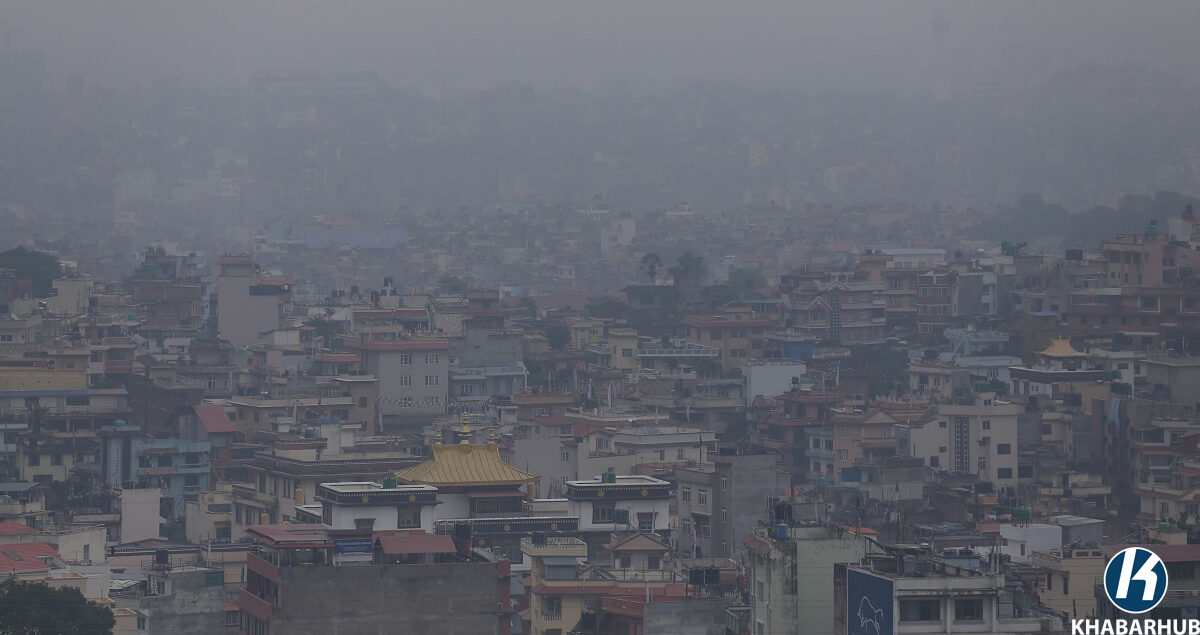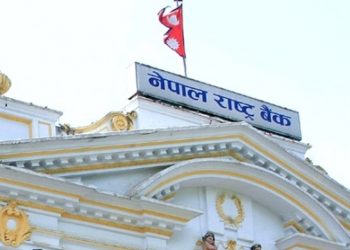KATHMANDU: In recent weeks, air pollution in the Kathmandu Valley has worsened significantly, becoming both visible and physically noticeable. Reports say hospitals are seeing a rise in patients with symptoms such as burning eyes, sore throats, headaches, and respiratory problems.
Typically, by March, cases of colds and respiratory illnesses begin to decline. However, 50% of the patients visiting hospitals now report symptoms directly linked to air pollution, such as nasal congestion, persistent cough, and difficulty breathing.
Unlike seasonal viral illnesses, which generally subside within a week, symptoms caused by pollution tend to linger for three to four weeks.
The impacts of air pollution are not limited to the elderly or those with preexisting health conditions—healthy individuals are also experiencing frequent coughing and slower recovery times.
Children under five, the elderly, asthmatics, and individuals with chronic diseases are particularly vulnerable, according to healthcare professionals.
Pollution contains harmful chemicals and fine particulate matter. While larger dust particles are filtered out in the upper respiratory tract, smaller particles, like PM2.5, penetrate deeper into the lungs, leading to asthma, infections, and chronic respiratory conditions. In some cases, this can result in acute asthma attacks, fainting, or dangerously low oxygen levels.
Beyond respiratory issues, air pollution weakens the immune system, making individuals more susceptible to pneumonia and other infections.
Toxic pollutants such as nicotine, cadmium, nitrogen dioxide, and sulfur dioxide enter the bloodstream, affecting vital organs like the heart, kidneys, and brain, and increasing the risk of cancer and paralysis. For pregnant women, high pollution levels pose risks to their unborn children.
During the winter months, cold air traps pollution in the valley, creating a “blanket effect” that prevents proper air circulation. Pollution levels are particularly high in the morning and evening.
Seasonal fires, pollution, and urban activities have all contributed to the deterioration of air quality.
Air pollution severely impacts daily life and long-term health. Persistent coughing, shortness of breath, and reduced physical endurance can lead to both physical and mental health issues.
Additionally, air pollution shortens life expectancy. Compared to children in Western countries, Nepali children are estimated to have a life expectancy that is two years shorter due to air pollution.
The Ministry of Health reports that air pollution causes 42,000 deaths in Nepal annually—19% of which are children under five and 27% are individuals over 70. The data indicates that air pollution has decreased the life expectancy of Nepalis by 4.1%.
In the past, asthma and lung diseases were mostly linked to smoking, but today, due to worsening air pollution, even non-smokers are developing asthma and lung cancer.
Nepal’s air quality is far worse than the World Health Organization’s safe air standards, making this a growing public health crisis.
Air pollution is often referred to as a silent killer. Though invisible, its effects are severe, impacting not only individual health but also society and the country’s global reputation. Tackling this crisis requires a joint effort from the government, society, and individuals.
The first step in addressing air pollution is identifying its sources, which can vary by region. Research is essential to understand the main causes and implement targeted solutions.
In areas where transportation is a major contributor, phasing out old vehicles and encouraging the use of electric alternatives should be a priority.
Industrial pollution should be controlled by enforcing regulations and temporarily halting operations in severely affected areas.
Similarly, in regions where firewood use is a significant factor, promoting the use of improved stoves and alternative energy sources such as electricity and biogas is crucial.
Strict policies, continuous monitoring, and public awareness campaigns are necessary to effectively manage air pollution. Certain groups, especially those who spend long hours outdoors, are more vulnerable to its effects.
Children who play outside, traffic police, drivers, and factory workers face a higher risk of exposure. During periods of high pollution, the public should be encouraged to limit outdoor activities, reduce unnecessary vehicle use, and take precautions to minimize exposure.
While policy changes are essential, individuals also play a vital role in reducing air pollution.
Simple actions like avoiding unnecessary waste, limiting outdoor exposure during high pollution periods, and using protective measures such as masks and appropriate clothing can help minimize health risks.
Industries and factories should not be located in densely populated areas, and only properly inspected and licensed vehicles should be allowed on the roads. Clean energy sources such as electricity, solar power, and biogas should be prioritized over traditional fuels like firewood and coal.
While short-term solutions like wearing masks and reducing outdoor activity can provide temporary relief, the long-term solution lies in effective policies, strict enforcement, and sustained public awareness.









Comment